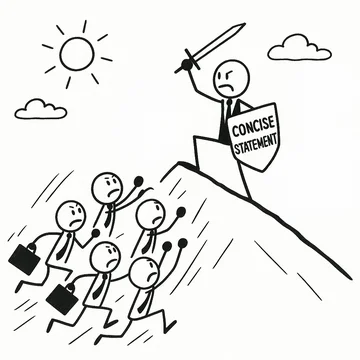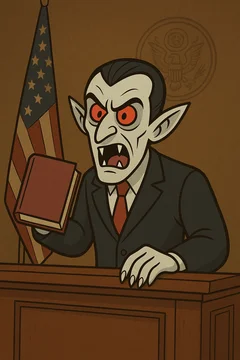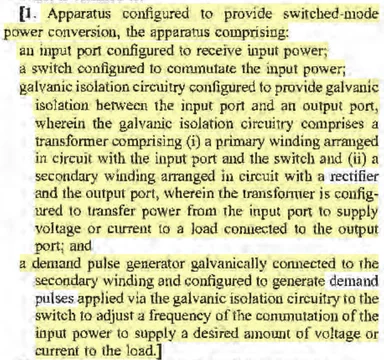We'd all like to win the war in one decisive strike. Just have a trial by stone and knock the whole thing out without needing to go to the time and expense of a trial . . . by law.
(Eds. note—has nobody else seen The Dark Crystal? I thought this was a universal reference, but it appears to be just another exhibit in the case for my being quite old)

Where was I? Anyway.
It's always tempting to take a big swing at summary judgment on validity or infringement in the hopes of knocking out the whole case. This urge, however, must be tempered by the knowledge that these big motions are harder to win. With limited pages and various judicial policies effectively limiting the number of SJ motions that can be brought, a more winnable motion on a small issue is often a good choice.
But an issue can be too small.
That was the lesson of Northwestern Univ. v. Universal Robots A/S, C.A. No. 21-149-JLH, D.I. 327 (D. Del. Aug. 28, 2024). The defendant filed a couple big SJ motions on 101 and noninfringement, but also moved for no willful infringement prior to receiving a formal notice letter in May 2020 (about 8 months before suit was filed).
In opposing the motion, plaintiff didn't dispute that they first notified defendant of the potential infringement in May 2020. Instead they argued that there was a factual dispute as to whether defendant otherwise had knowledge of infringement based on a citation to the patents in an IDS filed by a parent company, and a few other stray bits and bobs of info.
Judge Hall, however, denied the motion without addressing the merits of these arguments, instead focusing on the meager fruits of granting the motion:
Defendants’ request for summary judgment that it “cannot be liable for willful infringement before May 2020” (D.I. 254, 257) is DENIED. This suit was filed in February 2021, and the record contains evidence that Defendants received a notice of alleged infringement the year prior, in May 2020. Granting summary judgment under these circumstances will not resolve Plaintiff’s “claim” (i.e., assertion) that Defendant willfully infringed (which might support enhanced damages). And the Court is not persuaded that granting partial summary judgment that a Defendant did not willfully infringe before a particular date would narrow the case in some sensible fashion such that a material portion of the trial won’t be necessary.
Id. at 2
It's hard to argue with the logic here. With limited time at trial, I don't imagine the parties will want to spend too much time presenting evidence that, for instance, "in December 2016, a Universal Robots senior employee, Ms. Roberta Nelson Shea, emailed a link to the 'cobot' Wikipedia page to her colleague." D.I. 282 (Plaintiff's Opposition Brief) at 24.
If you enjoyed this post, consider subscribing to receive free e-mail updates about new posts.




